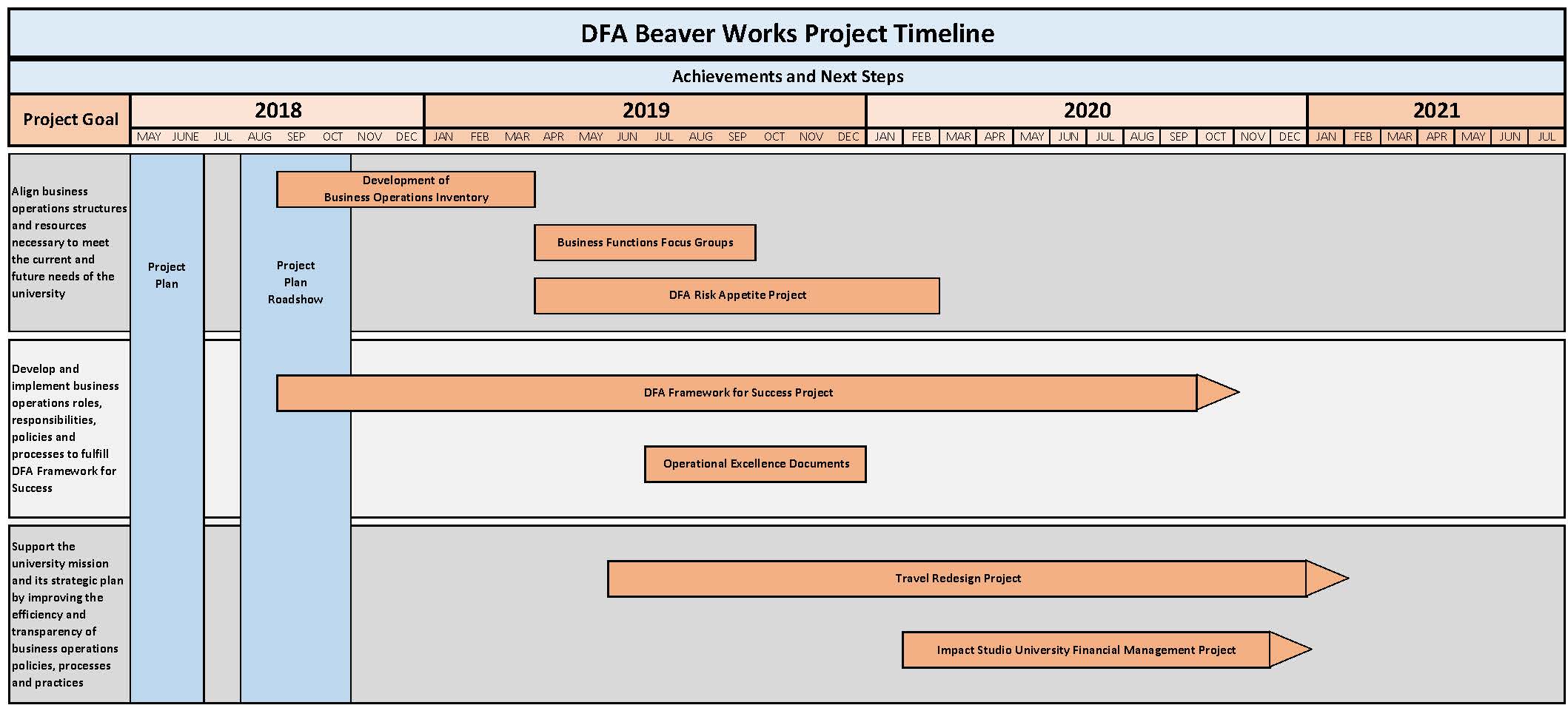Business Operations Inventory: Sept 2018 - March 2019
Sept. - Nov. 2018: In support of the priority to build an innovative and responsive organization, the Core Project Team is creating a business operations function inventory for OSU:
- Budget and Fiscal Planning
- Business Centers
- Business Affairs
- Procurement, Contracts and Materials Management
- Business Offices (e.g. Cascades, University Facilities, Infrastructure and Operations, Athletics, Research Office and University Housing and Dining Services)
Dec. 2018 - March 2019: Worked with Javier Calvo Amodio, Associate Professor in Mechanical, Industrial and Manufacturing Engineering, and his research team to compile and refine the business operations inventory data to create primary and secondary areas. An explanation of this process is provided by Dr. Calvo below:
“Using the inventory spreadsheets collected from the various business units, the team’s analysis focuses on identifying commonalities in language across the business units in how they state their tasks. The methodology the team is using to complete this analysis is an iterative coding process that involves identifying codes that are both unique to individual business units and common across all business units. These key terms are then coded for the tasks provided by all business units in the inventory spreadsheets. The codes are evaluated for their validity and refined to a new set of codes that is then applied to the list of tasks. This iterative process is repeated until agreement is reached among the team. The team expects this coding process to yield key insights into the commonalities and differences across the various business units in how they structure and designate their tasks. This information will be used to help group tasks into defined roles for improved standardization of roles across all business units to analyze the data and information gathered in the inventory and focus groups. We will use that data to assess viable structure options to present to the Executive Steering Committee for review.”
Nov. 2018: Information was presented to the university community at Training Days.
Dec. 2018 - March 2019: Identified quick win projects, prioritize and develop action plans to work with subject matter experts to develop and implement solutions that provide momentum as longer term project needs and priorities are identified in the focus groups.
Business Functions Focus Groups: April 2019 - June 2019
April 2019 - June 2019: Engaged over 280 business operations employees and university partners in 20 focus groups on 8 functional areas identified in the business operations inventory, including:
- Accounts Payable, Accounts Receivable, Business Analytics, Grants, Payroll, Purchasing, System Access, Travel
- The feedback from these sessions identified strengths, weaknesses, opportunities and threats.
June 2019 - September 2019: Compiled and analyzed the feedback from the focus groups. Provided summarized findings of each functional area focus groups along with a summary of the business operations inventory work completed by the Core Project Team to participants and then all of DFA business operations employees.
Operational Excellent Documents
June 2019 - December 2019: Created Operational Excellence documents for each functional area (Accounts Payable, Accounts Receivable, Business Analytics, Grants, Payroll, Purchasing, System Access and Travel) to identify next steps in the areas of policy and process improvement, information technology solutions and organizational structure considerations. Present findings to Mike Green, Heidi Sann and Sherm Bloomer to identify options and priorities moving forward.
January 2020 - February 2020: Operational Excellence Project Owners were contacted to discuss agreement and acceptance of their role within the functional area for which they were recommended by the Core Project Team
